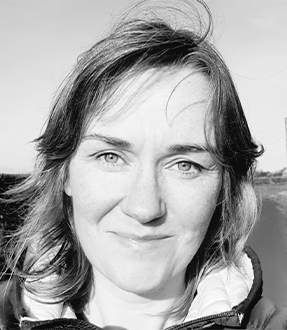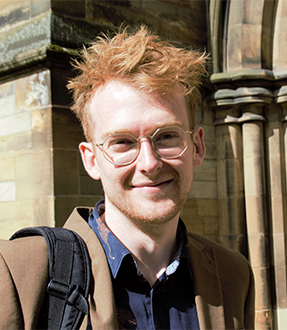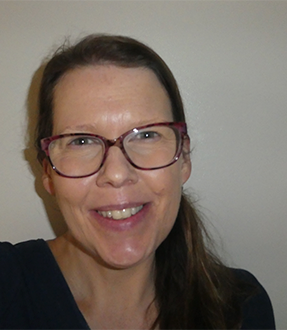Description
Date: 29th September 2021
Transport is the biggest source of carbon emissions in the UK; the first COVID lockdown in 2020 has demonstrated that drastic decrease in transport has a direct and rapid impact on both greenhouse gases emissions and air pollution. Commuting accounts for 25% of transport related emissions; revolutionising commuting is thus pivotal in meeting carbon and pollution targets. This revolution should include moving away from single-occupancy car travel and wider adoption of walking, cycling, public transport and car-sharing but also increase in flexible and “from home” working.
Join us to explore what post-COVID commuting might look like, its impact on the climate agenda and the co-benefits it could offer in terms of health and well-being, work-life balance, gender equality and economic opportunities.
Meet the Panel Members

Dr Caroline Gauchotte-Lindsay
Organisation:
James Watt School of Engineering, University of Glasgow
Professional role(s):
Senior Lecturer in Water and Environmental Engineering
Career highlights:
I lead a vibrant and diverse group of researchers working on some of the most pressing environmental challenges. We focus on the fate and removal of pollutants in engineered (wastewater, landfill) and natural (soil, river) systems. We are interested in legacy (petroleum and coal tar) contamination as well as emerging issues such as microplastics and pharmaceuticals. I am also a strong advocate for greater inclusion and diversity in academia and STEM and currently direct a project looking at enhancing the careers of female postdoctoral researchers.
Interest in topic area:
My work is firmly anchored in sustainability issues and my strong belief is that the fight for climate justice and social justice are intertwined. The inclusion and diversity project I direct is aimed at understanding the barriers to networking and collaboration for women in academia. We found that lack of mobility due to caring responsibility is an important factor. I think new ways of working and commuting give us an opportunity for greater inclusion in work for marginalised groups, such as women but also colleagues with disabilities.

Deborah Paton
Organisation:
Glasgow City Council
Professional role(s):
Group Manager: Connectivity Plan
Career highlights:
My current post in Glasgow City Council, developing a transport strategy which really has to contribute to tackling some big challenges. My time at West Lothian Council where I developed an active travel strategy, developed some great working relationships with colleagues, organisations & communities, and properly gained an appreciation of the complexity of local government but also its enormous & valuable contribution to our lives. Gaining an understanding of the transport issues faced by rural and remote rural communities through many consultancy projects in the Highlands & Islands during my private sector career (& some very scenic work trips).
Interest in topic area:
The topic of carbon free commuting is a huge one in the context of Covid-19 with the changes we’ve seen to peak travel demand & a shift to remote working for some – some changes that were arguably already in motion but were accelerated out of necessity during the pandemic. Big challenges remain in how to tackle modal shift for the journey to work to more sustainable modes, as well as to ensure we maintain a thriving public transport network in face of uncertain demand. On the other hand, we have opportunities to rebalance our work/life balance, spend more time in quality local neighbourhoods and improve our walking and cycling infrastructure.

James Dixon
Organisation:
University of Strathclyde / University of Oxford
Professional role(s):
Research Fellow
Career highlights:
James Dixon is a researcher working on the interplay between transport, electricity systems and demand flexibility in advancing understanding of Net Zero trajectories for the transport-energy system. He has also worked as an Energy Systems Technical Specialist at the Department for Business, Energy & Industrial Strategy, advising policy units and ministers on issues relating to low-carbon energy systems, and as an engineer in the aerospace (Rolls-Royce) and nuclear (UK Atomic Energy Authority) industries.
Interest in topic area:
As the ‘problem child’ of climate change mitigation, the transport sector needs radical shifts to meet Net Zero in terms of technology & behaviour. Luckily, those shifts can help us live better – but how do we make them happen?

Dr Caroline Mullen
Organisation:
Institute for Transport Studies, University of Leeds
Professional role(s):
Senior Research Fellow
Career highlights:
Currently co-investigator on four research projects exploring sustainability and regulation and planning for new mobility services (including electric vehicles, autonomous vehicles, shared mobility) and micro-mobility, and investigating approaches to reducing end-use mobility energy demand. Manage the MSc Sustainability in Transport and co-Manage MSc Sustainable Cities, both at Leeds University. For details of publications see https://scholar.google.com/citations?user=3TDjiv4AAAAJ
Interest in topic area:
Transport decarbonisation needs to include changes to the way we travel as well as rapid adoption of low carbon vehicles. Commuting is an important part of this, and we are at a where there are opportunities but also risks. Changes to working practices, especially hybrid-working and home working bring could mean less reliance on cars for commuting. Yet that is only going to be part of the story. The challenge is to create a mobility system providing safe, affordable and viable low carbon mobility for people who will commute through choice or necessity.